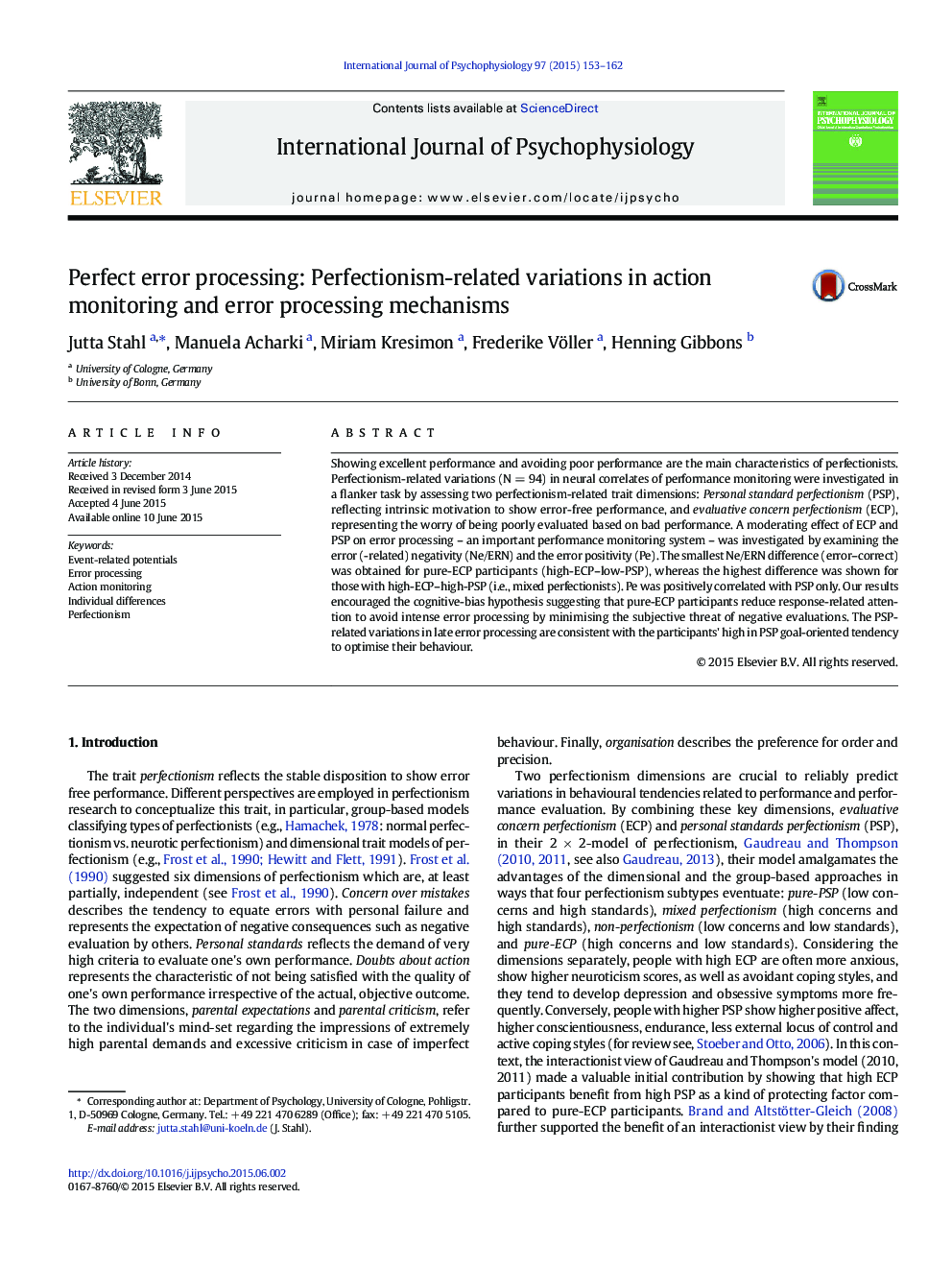| Article ID | Journal | Published Year | Pages | File Type |
|---|---|---|---|---|
| 929639 | International Journal of Psychophysiology | 2015 | 10 Pages |
•Evaluative concern perfectionism is related to error specific activity.•Perfectionism trait ‘perfectionistic standards’ is related to error positivity.•Both traits are related to post-error accuracy (ECP negatively, PSP positively).•Results suggest that ECP modulates attention on error processing.•Results suggest that PSP affects post error behaviour and aware error processing.
Showing excellent performance and avoiding poor performance are the main characteristics of perfectionists. Perfectionism-related variations (N = 94) in neural correlates of performance monitoring were investigated in a flanker task by assessing two perfectionism-related trait dimensions: Personal standard perfectionism (PSP), reflecting intrinsic motivation to show error-free performance, and evaluative concern perfectionism (ECP), representing the worry of being poorly evaluated based on bad performance. A moderating effect of ECP and PSP on error processing – an important performance monitoring system – was investigated by examining the error (-related) negativity (Ne/ERN) and the error positivity (Pe). The smallest Ne/ERN difference (error–correct) was obtained for pure-ECP participants (high-ECP–low-PSP), whereas the highest difference was shown for those with high-ECP–high-PSP (i.e., mixed perfectionists). Pe was positively correlated with PSP only. Our results encouraged the cognitive-bias hypothesis suggesting that pure-ECP participants reduce response-related attention to avoid intense error processing by minimising the subjective threat of negative evaluations. The PSP-related variations in late error processing are consistent with the participants' high in PSP goal-oriented tendency to optimise their behaviour.
